Mondelez, Nestle, and PepsiCo — sponsors of the war or not anymore?
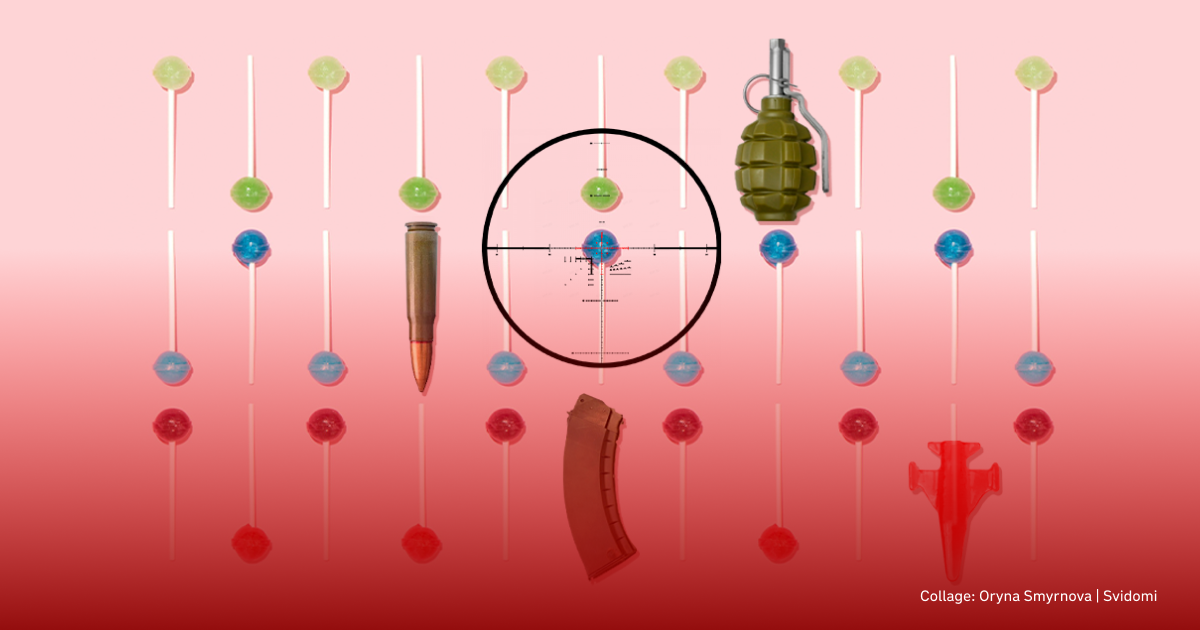
At the beginning of the Russian full-scale invasion, a number of global companies withdrew from the Russian market and sold their businesses there. However, even some of the best-known global brands continued to operate and pay taxes to the Russian state budget. The Ukrainian National Agency on Corruption Prevention (NACP) began including such companies in its International Sponsors of War list.
Inclusion in the registry did not mean imposing sanctions on the companies. Many of them are still operating in Ukraine. The NACP called the list a "powerful reputational tool" used to get international companies to leave Russia. However, Ukraine has faced pressure from other countries over the maintenance of the registry.
The Cabinet of Ministers of Ukraine decided to close the list. Read the article to find out whether it was an effective tool and what will happen next.
The process of compiling the list
As some companies left Russia while others remained there, the NACP realised it needed to come up with something new. Something that would allow them to apply pressure using the advantages of the democratic world: transparency of information and freedom of choice.
"We came up with the idea of creating a portal that would bring together data on how Russia can continue the war, who pays large taxes to the Russian state budget, and which companies are involved in supporting the Kremlin regime," Agiya Zagrebelska, head of the NACP's direction of minimisation of corruption risks in the sanctions policy, tells Svidomi.
In 2022, the NACP began compiling a list of International Sponsors of War, which includes information on large multinational companies that contribute to Russia's support for the war: paying taxes, participating in mobilisation and propaganda, supplying components and technologies that play a role in Russia's continuation of the war.
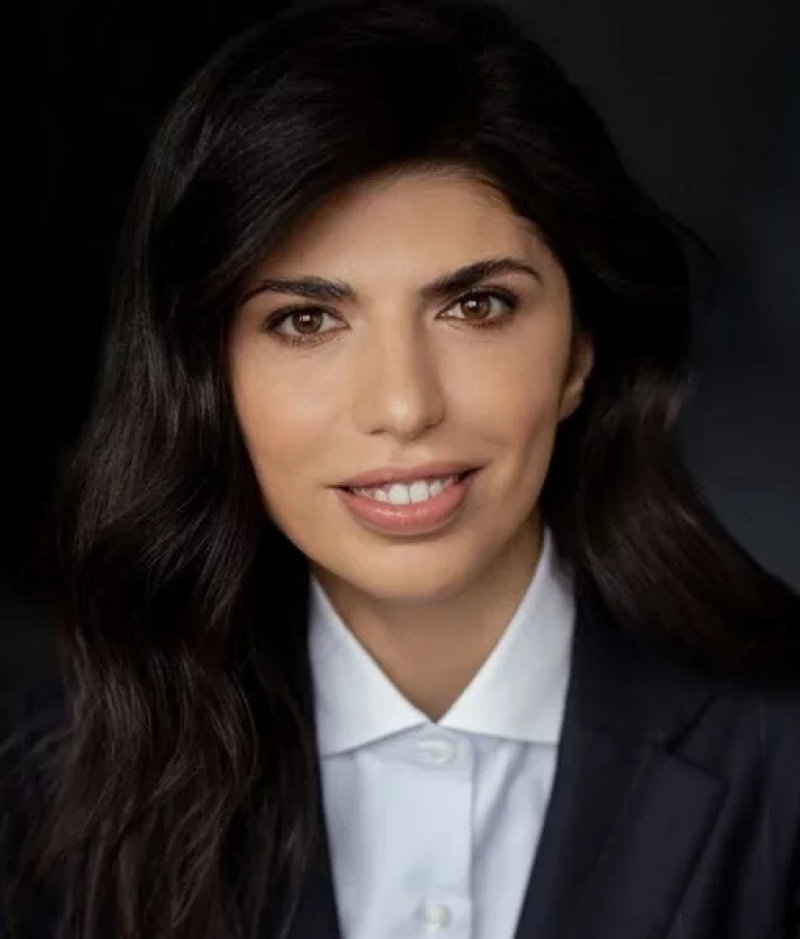
We have understood that companies that continue to do business in Russia send a signal that it is possible to continue working there. And these people will later lobby Western governments for appeasement because they still have a lot of money and assets [in Russia],
Zagrebelska says.
According to NACP, international companies paid $40 billion in taxes to the Russian budget in 2022-23.
Impact on companies
Many companies still operate in both Russia and Ukraine. That is why the products of those considered to be sponsors of the war remain on the shelves of Ukrainian supermarkets. But there are reputational losses.
"It is a tool of direct democracy, with minimal government involvement: we only add companies to the list. There are no legal consequences. People from all over the world can make their own decisions on how to act and whether to buy products from certain companies," explains Agiya Zagrebelska.
Ukrainian developers have created apps and chatbots that allow customers to check whether a company is still present in the Russian market. In January 2023, the most prominent Ukrainian retail chains announced a boycott of the French brand Bonduelle for supplying products to the Russian military.
One of the levers of pressure was cooperation with the World-Check database, which checks business partners for links to terrorist organisations and fraud.
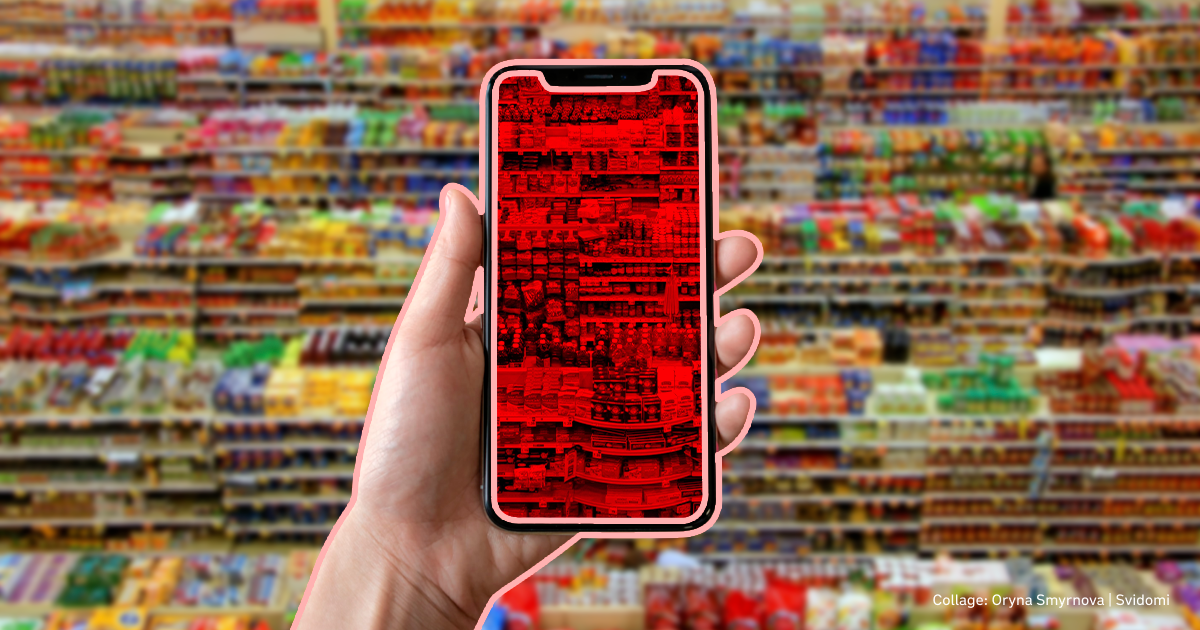
"It will create significant problems for them (the companies sponsoring the war — ed.) to continue supporting the war because banks and insurance companies use World-Check to assess risks. Therefore, the accomplices of the war will be restricted in their free access to personal and corporate finances," said former NAPC head Oleksandr Novikov.
Agiya Zagrebelska notes that companies suffer financial losses. For example, two weeks after Mondelez was added to the list of international war sponsors, its shares fell by $4 billion.
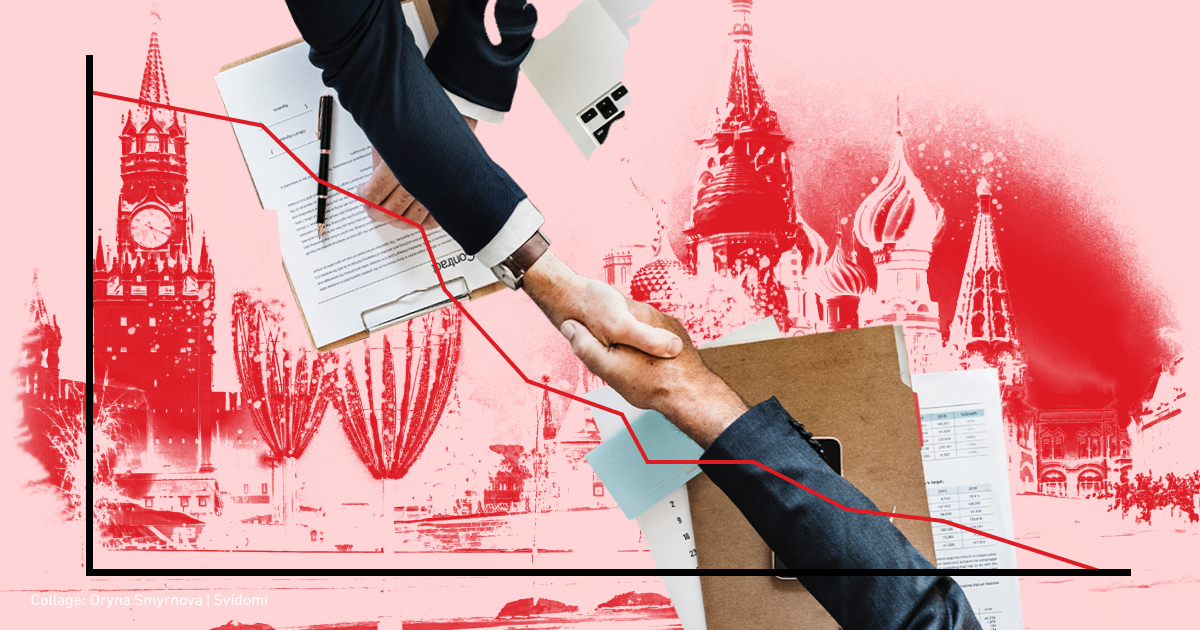
Mondelez brands include Milka, Oreo, Jacobs, Halls and Tuc. However, in February 2024, the company's CEO, Dirk Van de Put, said that investors were 'morally indifferent' to the company continuing to do business in Russia. In March, the Ukrainian diaspora in the UK organised a protest near the Mondelez subsidiary in Birmingham under the slogans "Stop Funding the War" and “Exit Russia.”.
On March 15, Svidomi sent a request for comment to the Mondelez office in Ukraine. We didn’t receive a response. Representatives of Knauf, PepsiCo, Unilever, Bonduelle, Philip Morris and Mars, which continue to operate in Russia, also did not respond.
Nestle told us that it had stopped production of most of its products in Russia, complied with the sanctions and stopped further investment. Instead, it is building new production facilities and providing humanitarian aid in Ukraine.
Updated 08.04.2024
In response to our request, the METRO Ukraine press service informed us that the NACP's decision to add METRO AG to the list of "International Sponsors of War" does not apply to METRO Ukraine directly. The company continues to operate in Ukraine, assists the Armed Forces of Ukraine in civilian areas and has no direct ties with the Russian market.
"The position of the Ukrainian METRO team is clear: we condemn Russia's terrorist actions and strongly disagree with the decision of METRO AG's parent company to continue operating in the territory of the terrorist country. However, the decision to withdraw METRO from the Russian Federation belongs exclusively to the headquarters in Düsseldorf. At the corporate and diplomatic levels, we continue to put pressure on the central office and hope for a quick positive decision," the press service replied.
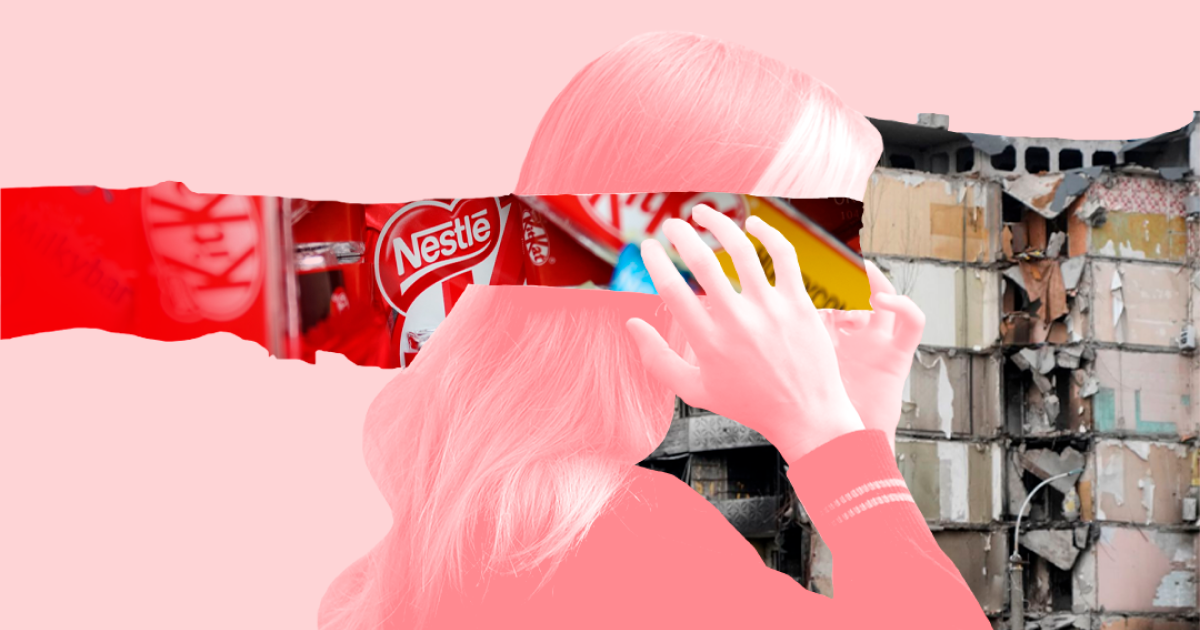
The political role of the registry
We held an interview with Agiya Zagrebelska before the decision of the Cabinet of Ministers to close the list. Even then, Zagrebelska acknowledged that Ukraine was facing pressure: "If the list were not effective, no one would have reacted. But, unfortunately, international companies can still use politics for their private interests".
Even though the registry is not legally binding and does not impose sanctions on companies, it has caused problems for Ukraine at the foreign policy level.
In 2023, Hungary blocked EU support for Ukraine and sanctions against Russia by adding the OTP Bank to the list of international sponsors. A few months later, the NACP removed the bank from the list.
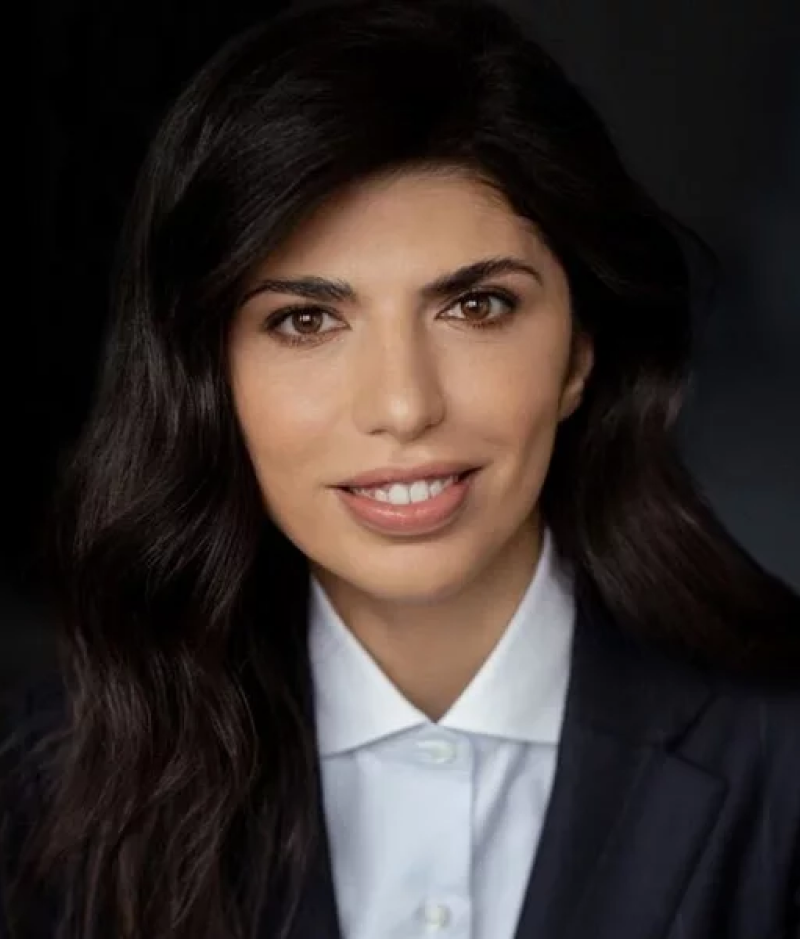
They (OTP Bank — ed.) tried for a long time to get off the list, and they succeeded only when the European Commission joined the negotiations. OTP has made a number of commitments, and we have evidence that the bank is moving towards leaving the Russian market. The situation with Raiffeisen is a bit more complicated,
says Agiya Zagrebelskaya.
The activities of Raiffeisen Bank International in Russia caused tensions between Ukraine and Austria. As a result, the NACP suspended Raiffeisen's status on the list. Greece also blocked the 11th package of EU sanctions against Russia at one point by including its companies in the registry.
Reuters, citing its sources, reports that China and France have also put pressure on Kyiv because of the list.
Why was the registry closed?
The Cabinet of Ministers made this decision at a meeting on March 20. Ambassadors and representatives of the countries whose companies are on the list also participated in the meeting.
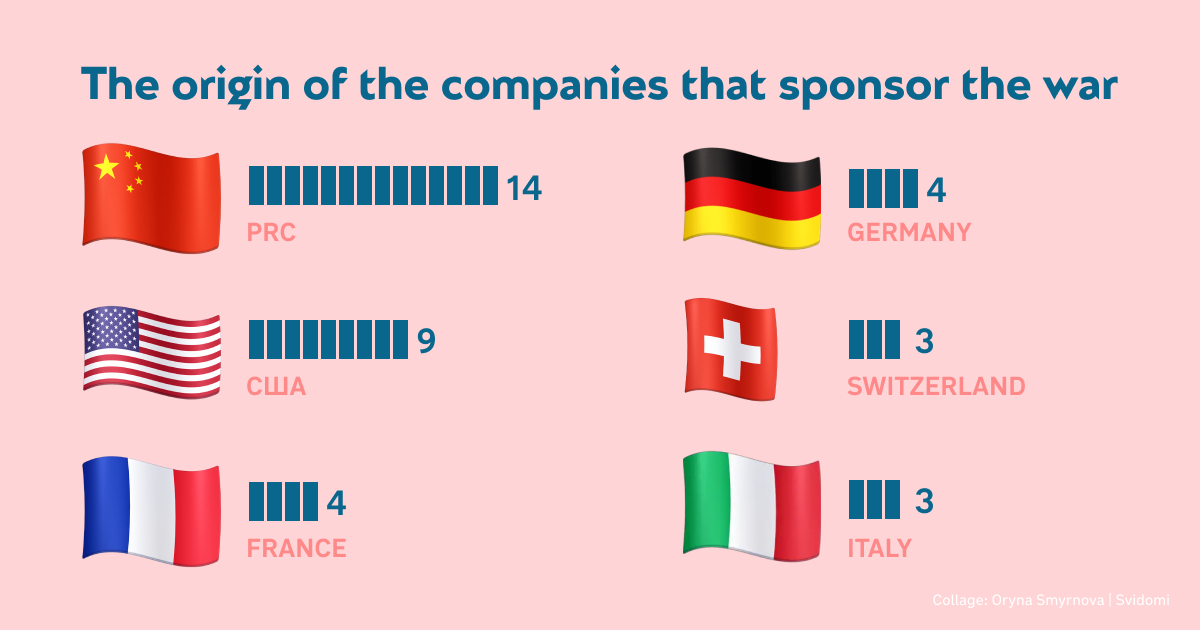
The Ministry of Foreign Affairs of Ukraine reported numerous complaints from diplomats of partner countries about the lack of a regulatory framework for the existence of the list of international war sponsors. According to them, the list negatively affects "the adoption of important decisions to counter Russian aggression".
The Ministry of Justice emphasised the "unacceptability of disseminating such information on behalf of the state without regulating the issues at the legislative level".
The NACP did not oppose the closure of the registry. Viktor Pavlushchyk became the agency's new chairman at the end of February. Almost immediately, he publicly stated that the process of filling in the list of war sponsors needed to be regulated.
The deputy head of the NACP, Artem Sytnyk, said that the agency did not have the resources to deal with the war and sanctions portal. It is not surprising, given that in autumn 2023, the Verkhovna Rada returned the electronic declaration of public officials — the NACP is responsible for maintaining a registry of around 800,000 declarants.
What is next?
The NACP says it will submit the information from the list to the Interagency Working Group on the Implementation of State Sanctions Policy. The group will determine the grounds for imposing sanctions on the companies on the list. The only official list is the State Sanctions Registry on the website of the National Security and Defence Council of Ukraine.
In addition to the list of international sponsors of the war, the NACP maintained the sections "Components in weapons", " War Tools", "Candidates for sanctions", "War and art", "War and sport", "Foreigners in Russian companies", and lists of sanctioned persons on the "War and sanctions" portal. The maintenance of these registries needs to be regulated. Access to these sections will be blocked until this issue is resolved.
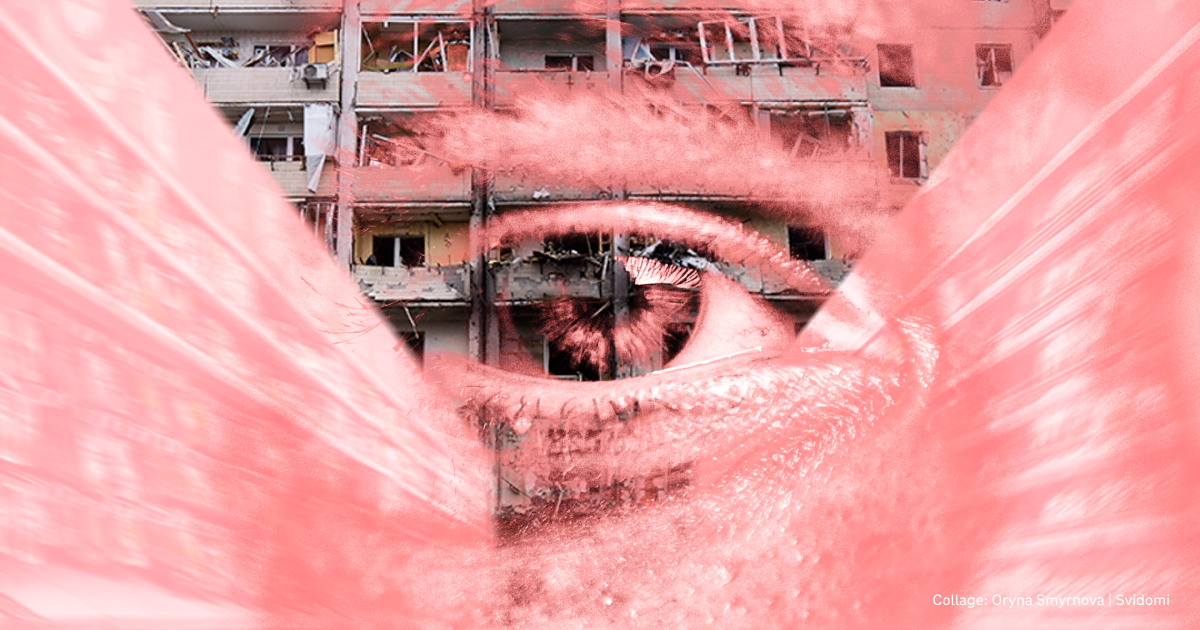
However, this does not mean that it will no longer be possible to monitor companies that continue to operate in Russia. The Kyiv School of Economics (KSE) runs the #LeaveRussia platform, which analyses the activities of more than 3,000 companies that continue to operate in Russia. Project researcher Natalia Rybalko said the database would continue to be built.


